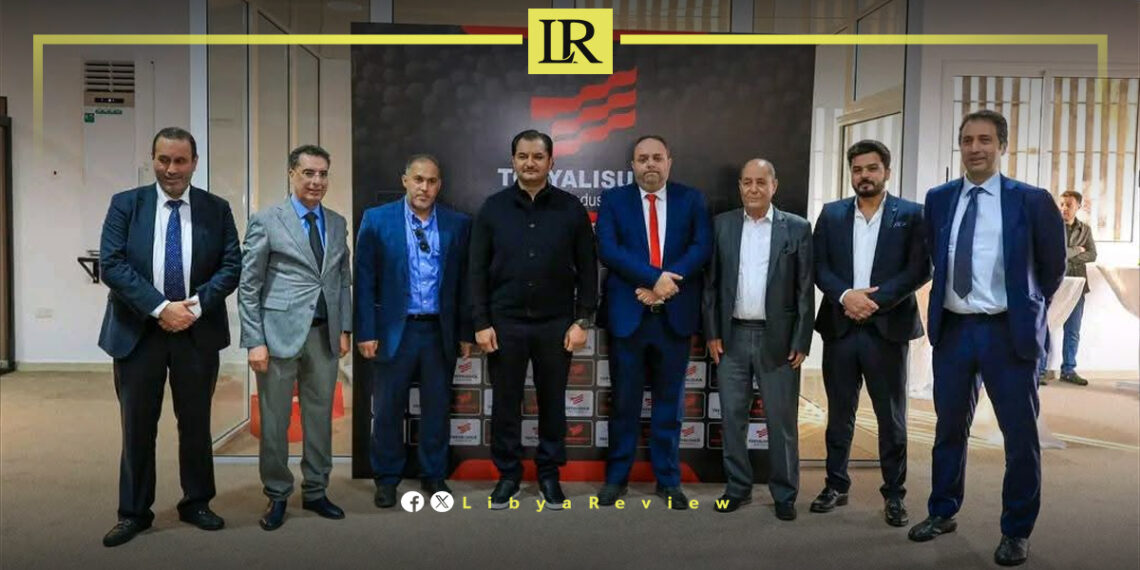Lieutenant General Saddam Haftar, Chief of Staff of the Libyan Ground Forces, has overseen the launch and ongoing construction of what is set to become the world’s largest direct reduced iron (DRI) plant in the Ras Al-Mnqar area, east of Benghazi.
During a field visit to the construction site, Saddam Haftar met with a delegation from Tosyali Group, a Turkish steel giant renowned globally for its expertise in the iron and steel industry. The delegation briefed him on the current progress and technical aspects of the project.
The Libyan engineering team supervising the implementation also delivered a detailed technical presentation. Following the briefing, Haftar provided several technical observations and recommendations to ensure the highest standards of execution.
He emphasized the strategic importance of the project, not only as a cornerstone of Libya’s industrial future but also as a vehicle for youth empowerment. He called for the establishment of a vocational and training academy alongside the plant to equip young Libyans with essential skills in modern manufacturing and heavy industry.
Spanning an area of 380 hectares, the facility will have a production capacity of 7.5 million tons per year, positioning Libya as a future leader in global steel production and export.
This ambitious project marks a significant step forward in reviving Libya’s industrial sector and strengthening economic diversification in the east of the country.
Libya has been in chaos since a NATO-backed uprising toppled longtime leader Muammar Gaddafi in 2011. The county has for years been split between rival administrations.
Libya’s economy, heavily reliant on oil, has suffered due to the ongoing conflict. The instability has led to fluctuations in oil production and prices, impacting the global oil market and Libya’s economy.
The conflict has led to a significant humanitarian crisis in Libya, with thousands of people killed, and many more displaced. Migrants and refugees using Libya as a transit point to Europe have also faced dire conditions.
The planned elections for December 2021 were delayed due to disagreements over election laws and the eligibility of certain candidates. This delay has raised concerns about the feasibility of a peaceful political transition.
Despite the ceasefire, security remains a significant concern with sporadic fighting and the presence of mercenaries and foreign fighters. The unification of the military and the removal of foreign forces are crucial challenges.


